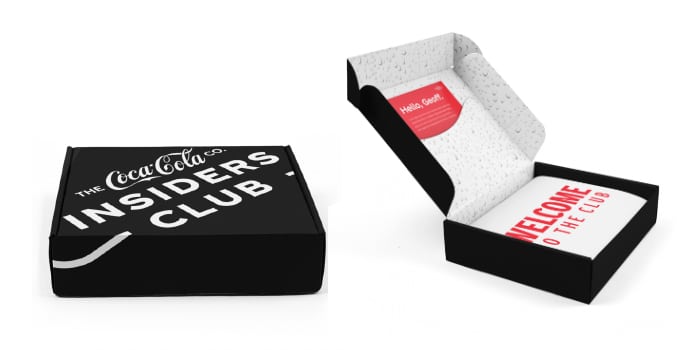
Kitu Life Looks to Philosopher to Eliminate Office ‘Locker Room’ Culture
When the founders of Kitu Life Super Coffee, makers of protein-enhanced RTD coffees and a recent BevNET Best of 2019 award winner, noticed “locker room” culture creeping into the start-up’s New York office last year, they sought to stamp it out by adding a new team member: a philosopher.
The Wall Street Journal reported this month that Kitu Life CEO Jim DeCicco, along with his two brothers and co-founders, wanted to eradicate inappropriate behavior and jokes in the workplace before the company grew any larger. He brought in philosopher Reid Blackman, an “ethical-risk” consultant and ethics professor at DeCicco’s alma mater, Colgate University, to help.
“I thought it was an interesting way for us to weave ethics, moral principles and values into our business without becoming this HR-compliant, corporate bureaucracy,” DeCicco told the outlet.
Blackman worked with the team several days a month, and quickly recognized the problem: Kitu Life’s employees were all white men, most of them the DeCiccos’ college friends and basketball teammates. He worked with the brothers and the Kitu Life team to draft a two-page ethics statement, which included a commitment to diversifying its team, vowing to “advertise in places where non-white guys are.”
Since then, Kitu Life’s team has grown from 12 to 66 workers, from two women and two minorities to 22 women and 11 minorities. The average salary of its female employees is now higher than that of its males, according to WSJ.
To boost company morale, they’ve also added unlimited vacation time, restricted after-hours work calls and emails, and started paying sales reps salaries instead of commission. Blackman continues to work with the team, leading workshops with employees to discuss and analyze offensive statements and behavior.
“We have 70 motivated people, who have caught on to a bigger vision than selling coffee,” DeCicco said.

Blue Bottle Coffee Beta Testing Ridding Cafes of Disposable Coffee Cups
Blue Bottle CEO Bryan Meehan announced last week that two San Francisco Bay Area locations of the coffee shop will be implementing a “zero-single-use-cup program” where they will stop offering customers disposable cups, the San Francisco Chronicle reported.
Meehan authored a blog post on the brand’s website discussing “how climate change is inspiring us to waste less and do more.”
“We are proud to announce an experiment that may not work, that may cost us money, and that may make your life a little more complicated,” he wrote.
Customers who wish to buy coffee at this Blue Bottle location will have to bring their own mug or thermos, or put down a deposit (between $3 and $5) on a “multi-use loaner cup” which can be returned to the cafe for cleaning. The pilot cafes will also stop selling bagged coffee beans, requiring customers to order the beans by weight and bring their own containers to transport them. Meehan told the San Francisco Chronicle that he does not expect menu prices to go up due to this pilot program, though he foresaw these locations making less money than others.
“A commitment to reuse will wreak havoc on every aspect of our pilot cafe’s operations,” wrote Meehan in the blog post. “We expect to lose some business. We might fail. We know some of our guests won’t like it—and we’re prepared for that. But the time has come to step up and do difficult things.”
Meehan also stated in the post that Blue Bottle is aiming for all its cafes to be zero-waste by the end of 2020, meaning that at least 90% of its waste is diverted from a landfill, according to the Zero Waste International Alliance.

Coca-Cola Subscription Service Sells Out in Three Hours
Last week, The Coca-Cola Company announced the launch of The Coca-Cola Insiders Club, a new subscription service offering a limited number of people the chance to taste over 20 of the company’s new beverages set to launch early next year.
Starting in January, subscribers will receive three beverages a month — from AHA flavored sparkling water to Coke Energy — for $10 a month or $50 prepaid for a six-month membership.
When it first launched last Monday, the subscription service was open to 1,000 people, and sold out in only three hours, according to Fast Company.
A Coke spokesperson told the outlet that the service will open up to more members in mid-January to accommodate the 8,000 people on the waitlist.
“We are absolutely thrilled to see how quickly the Insiders Club sold out in three hours,” said McCrea O’Haire, digital experiences manager at Coca-Cola North America, told the outlet. “It confirms consumers are truly passionate about our portfolio of brands and innovations and proves there is an opportunity to scale in order to allow more people to participate.”
According to Coke, the recent Coke Cinnamon holiday launch, which was promoted on the company’s social media and allowed consumers to provide email addresses to learn more, provided insight into consumers’ desires to try new releases before they hit shelves.
Oregon Bans Cannabis-Infused Alcoholic Beverages
ABC News reported last week that the Oregon Liquor Control Commission ruled that alcoholic beverages sold in the state may not contain THC or CBD, effective January 1.
Mark Pettinger, a spokesman for the commission, told the outlet the new ruling was sparked by the U.S. Food and Drug Administration’s concerns that CBD could potentially cause liver damage.
“There’s very little scientific evidence,” he said. “People are using them for wellness, but how they interact with other substances, not a lot is known.”
Pettinger said the commission will next look to ban bars from mixing CBD-infused beverages with alcoholic beverages to create cocktails. He also pointed out that the U.S. Alcohol and Tobacco Tax and Trade Bureau does not approve the use of CBD-infused beverages.